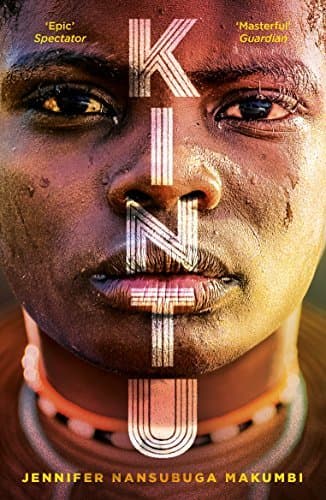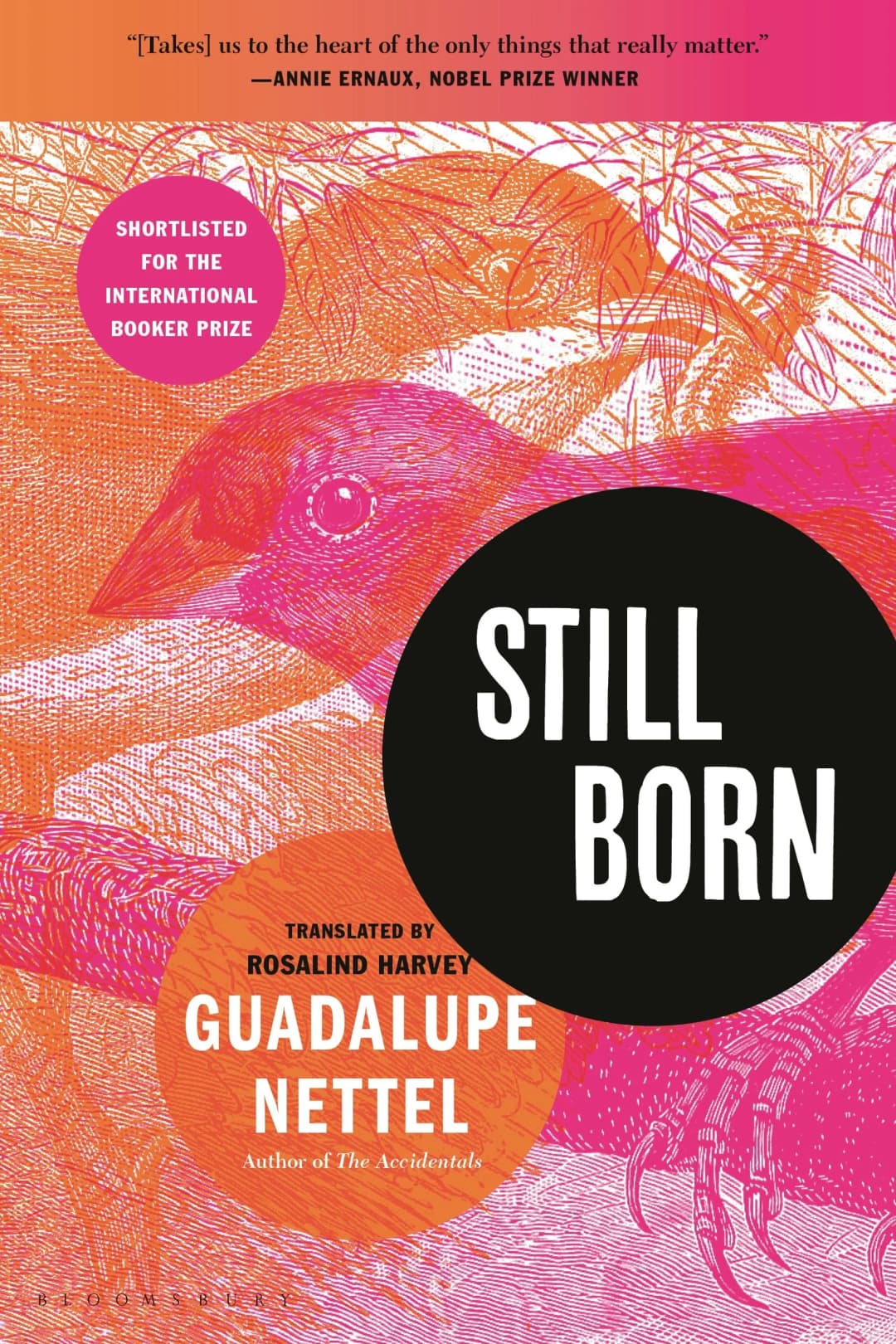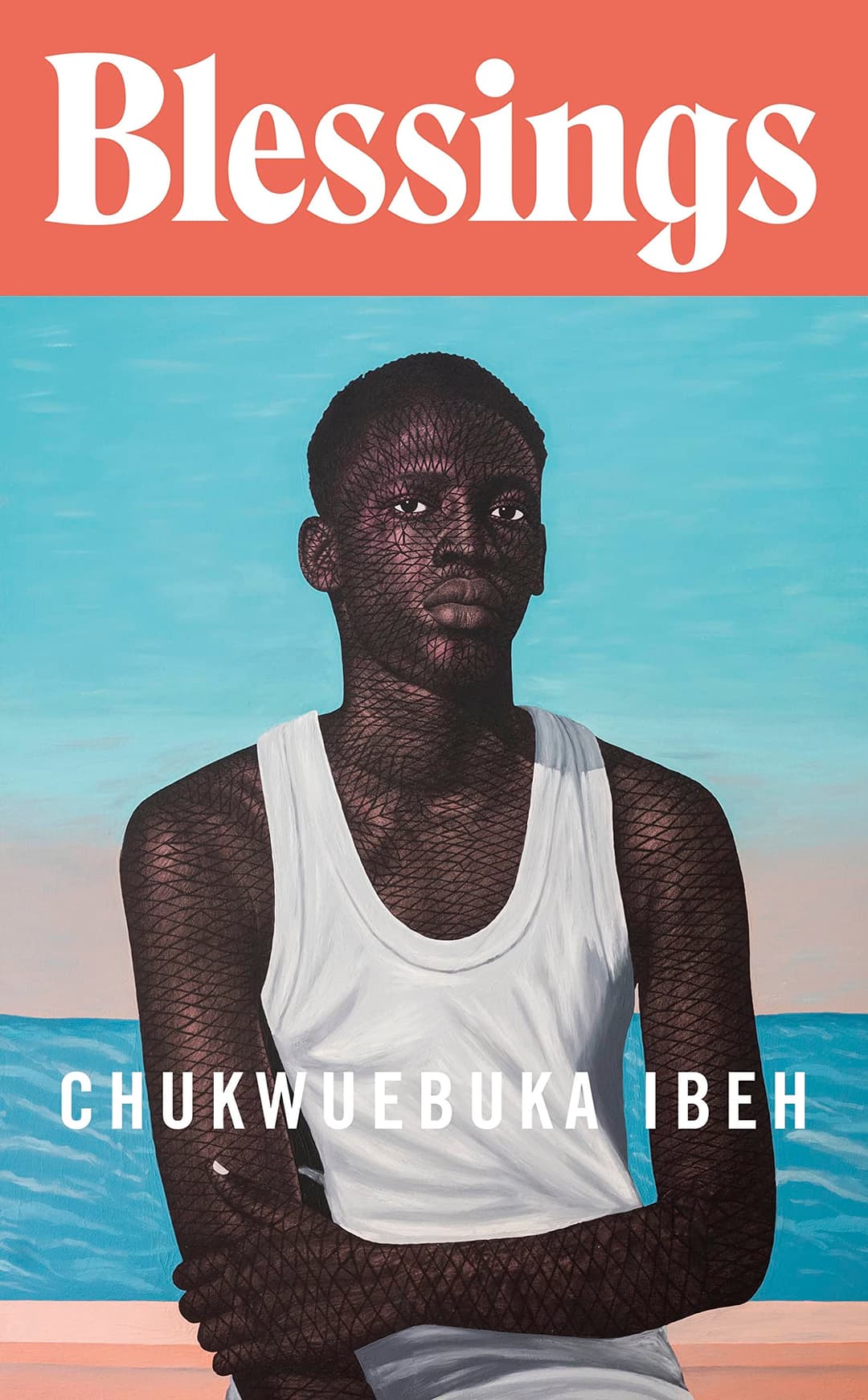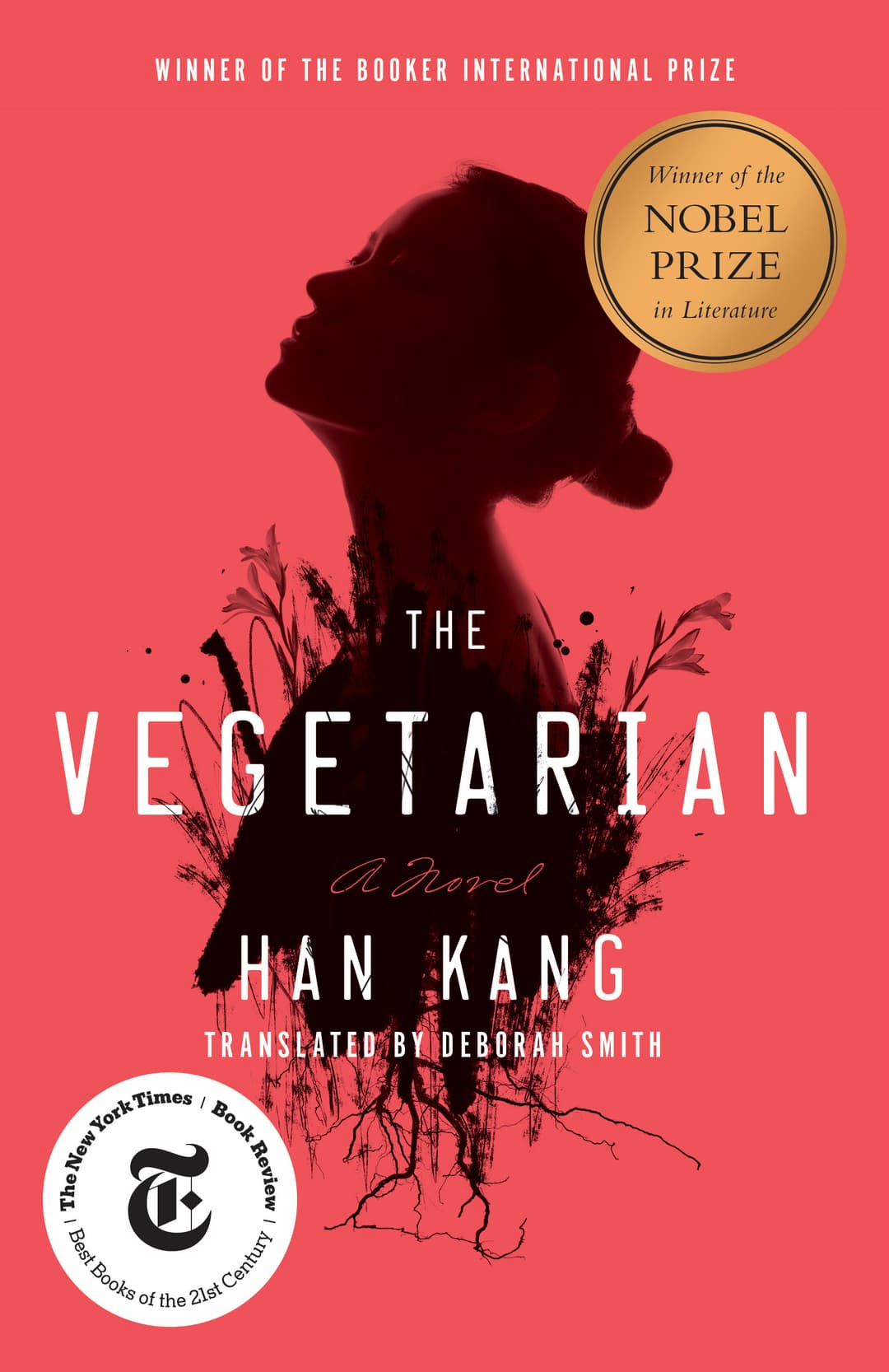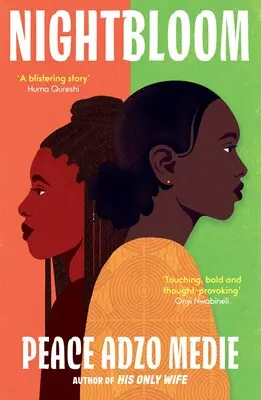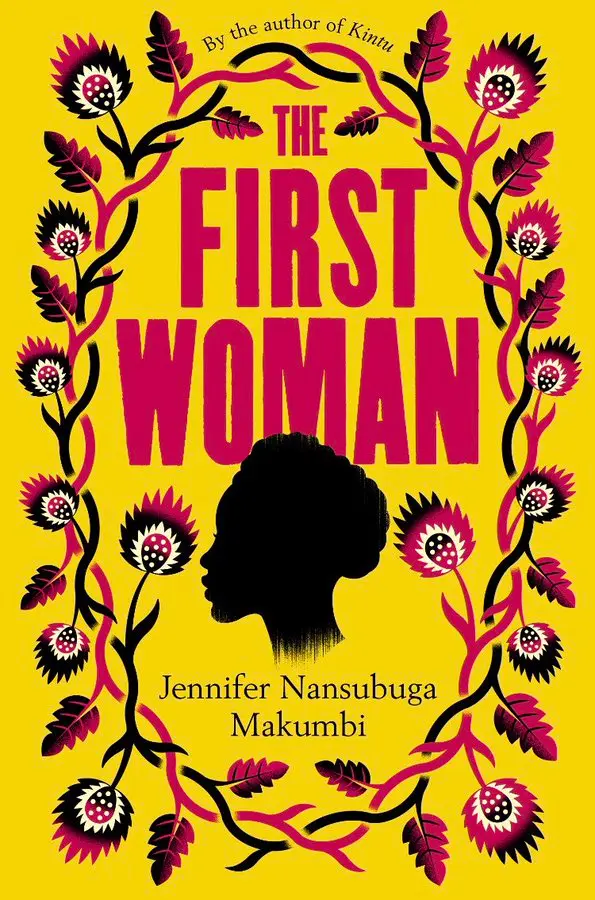Book Reviews & Thoughts
Books I have read recently and my thoughts on them
Kintu - Jennifer Nansubuga Makumbi
He was sacrificed at the altar of knowledge for knowing and refusing to know - Miisi's sister **This review has some spoilers Kintu is Jennifer Nansubuga Makumbi’s first novel, published in 2014. With its premise being that of a cursed bloodline and generational curses, I went in sceptical, but 50 pages in, and I was fully sold, constantly wondering what would happen next. The story begins in 1750 with Kintu Kidda, a governor in the Buganda Kingdom, on his way to pay homage to the new Kabaka. He has an entourage of his men and his adopted son, Kalema. Kalema was the son of a foreign Tutsi man, Ntwire. After the death of his mother during childbirth, Kalema was taken in by the Kintu family and raised together with the governor’s own son, Baale. His father, Ntwire, settled close by on a farm gifted to him by Kintu, keeping an eye on his son. Unlike Kalema, Ntwire refused to mesh with the Baganda people and insisted on his foreignness. In this homage journey, at Ntwire’s insistence, Kintu Kidda was taking Kalema to the palace with the hopes of him finding employment there. Whilst resting at one of the stop points, Kalema is tending to Kintu’s needs, and due to a mishap, Kintu hits him with the intention of scolding, but instead hits his head, leading to the death of Kalema. Kintu is shocked by the incident, and once he arrives back in his province is too ashamed to declare the death of Kalema. Instead, he acts as though all went as planned and Kalema found employment. Ntwire, a man who had learned to rely on his senses to survive in a foreign land, suspects that something is wrong and goes in search of his son. But before leaving, he leaves a curse on Kintu. A curse that states that for Kintu and his people, to live will be to suffer and not even death would bring them relief. This marks the beginning of the curse that would haunt the Kintu lineage. It starts and unravels with the death of his dear son Baale, followed by the suicidal death of his favoured wife Nnakato and soon after, Kintu Kidda himself would lose his own mind, flee his village and abandon his position as governor. What’s left behind is the curse that would manifest in the Kintu future generations as sudden death, madness and suicide and an instruction that is passed from generation to generation that no Kintu child should be hit on the head. As for the family curse, Miisi argued that it was a documented fact that in Buganda mental health problems such as depression, schizophrenia, and psychosis ran not only in families but in clans—the so-called ebyekika, clan ailings. - Miisi With this setting in place, we follow Kintu’s descendants and see the curse manifest in different ways. Finally, in 2004, the elders of the Kintu family decided to gather all the members of the family scattered across Uganda with the sole intention of breaking this generational curse. As we navigate through the family tree, we are left to wonder if indeed this generational curse can be removed and more importantly, if it exists at all. “The thing is . . .” Suubi paused as if to think again, “You don’t realize that you’re cursed until you’re exposed to this other way of life. I mean, if we lived on our own, in our cursed world, we wouldn’t know. Then the curse would not exist.” My view is that they came on earth, did their thing and now they have bowed out. Who is to say that things are not right? Nature is as ugly as it is beautiful. People drop dead, people kill each other, people go hungry: you don’t dwell, you just exist. But then this other world comes along and gives you ideas. You start to think, hmm, I am not right, it’s not fair. Things you would never have said before. Soon you start to blame everything on a curse.” “Our own cursed world!” Nnabaale laughed belatedly. “It’s just hit me.” “What is a curse to some people is normal to others. - Suubi Kintu, the book, shows Uganda in a new, interesting light, touching on quite a number of themes from colonisation, religion & spirituality and more importantly, mental health and how it manifests in African societies. Is it possible for us to break generational curses? How much of it is true, and how much is a coincidence? Africans are greatly spiritual and believe in cycles, curses, blessings and the synchronicity of everything. This then leaves us grappling with questions such as how much of a death, an illness, a misfortune is just that or can it be traced to agreements that our ancestors made decades ago? How much of our free will is actually ours, and can we defy our 'fate'? Or for the more rational, are we stuck in a loop of self-fulfilling prophecies due to our beliefs? Jennifer Makumbi explores all these possibilities in this book. My reviews of Makumbi’s books always fall short. Her stories carry me beyond the realm of reality, where I forget to think critically and analyse the plot or the characters. This usually leaves me with a feeling that cannot be put into words. The feeling Kintu left me with was a feeling of being seen and understood. The story is set in Uganda, and as a Kenyan, I still feel a sense of familiarity with the characters, their traits, and plights; a feeling that is hard to come by.
Still Born - Guadalupe Nettel
In Still Born, a novel set in Mexico, we meet two close friends in their mid-thirties: Alina and Laura. Both are educated, independent, and firm in their decision to live a childfree life. To them, choosing not to have children represents freedom; freedom from what they view as the social and emotional shackles of motherhood. As Laura puts it in the first chapter: For years I tried to convince my girlfriends that procreating was a hopeless mistake. I told them that children, no matter how sweet and loving they were in their best moments, would always represent a limit on their freedom, an economic burden, not to mention the physical and emotional cost they bring about: nine months of pregnancy, another six or more of breastfeeding, frequent sleepless nights during infancy, and then constant anxiety throughout their teenage years. ‘What’s more, society is designed so that it’s us, and not men, who take on the responsibility of caring for children, and this so often means forfeiting your career, your solo pursuits, your erotic side and sometimes your relationship with your partner, too,’ I would tell them, vehemently. ‘Is it really worth it? But ideals are often tested by time. As they grow older, external pressure—from partners, family, and society—intensifies. This marks the beginning of a divergence between the two women. Laura, standing firm in her convictions, undergoes sterilization, preserving the life she fought hard to protect. Alina, however, changes course. After settling in Mexico and securing a stable job, she decides to start a family. It is easy, when we are young, to have ideals and to live according to them. What is more complicated is acting consistently over time, and in spite of the challenges life puts in our way. Alina's journey toward motherhood is far from easy. Hormonal treatments and repeated visits to specialists yield no results. Just as she begins to lose hope, she finally conceives-only to receive devastating news during a routine scan: her baby’s brain is not developing properly, and the child is unlikely to survive after birth. This forces Alina into a deeply painful emotional reckoning. How does one carry, love, and mourn a life that has barely begun? Meanwhile, Laura, content in her childfree life, finds herself unexpectedly drawn to a troubled young boy living next door. Slowly, and almost unwillingly, she begins to care for him, a life she thought was now behind her. This is a short, powerful novel that captures life in all its contradictions. The author explores how motherhood is not always a choice, not always biological, and certainly not always neat. As the book suggests, motherhood is porous; something that seeps in and takes shape in unexpected ways.
Blessings - Chukwuebuka Ibeh
“Just dance, Obi.” – Ekene (Obiefuna's brother) Oh, how it must feel to live in a world where you can be anything but yourself. Obi (Obiefuna) has always been queer; visibly so. As his father once remarked to his mother, “That boy, he is abnormal.” While his brother and peers loved football, Obi was quiet and self-effacing. The one area he stood out in was dance and he wasn’t just good at it, he was brilliant. Crowds would gather wherever he performed, their cheers only deepening his father’s disapproval. In a moment of fury, his father once asked if he was “a woman in a man’s skin.” But in his mother’s eyes, Obi could do no wrong. She cherished his gentleness, his empathy; in him, she found a companion and a confidant. Everything shifts when Obi’s father brings home a new apprentice, Aboy. Their closeness awakens something unfamiliar and frightening in Obi—feelings he’s never had to confront. When an intimate moment between them is discovered by his father, Obi’s fate is sealed. He is sent away to a remote Christian boarding school, abruptly torn from his mother and the only home he has ever known. At school, Obi learns to survive by hiding. Fear and shame shape him into someone he can barely recognise. In trying to protect himself, he betrays not only himself but also those like him. His constant paranoia, the dread of being found out, is palpable. As readers, we’re drawn into his fear; we carry his anxiety, day after day, year after year. Meanwhile, back home, his mother is quietly unravelling. She doesn’t understand why her son was taken from her, and while carrying that heartbreak, she also battles a serious illness she tells hides from Obi. When Obi finally finishes school, we begin to hope for his liberation. He gradually finds a community of people like him; those who offer the kind of safety, understanding, and love he’s never known. But how does one fully love or breathe in a country that doesn’t just reject you, but hunts you? Still, amid the brutality, Blessings offers glimmers of tenderness: acts of kindness, of friendship, of quiet resistance. There is pain, but also grace. This book was a gut-wrenching, lyrical way to begin my year. Chukwuebuka Ibeh writes with the cadence of poetry, weaving together grief, shame, hope, and love into an unforgettable debut. Blessings deepened my empathy and reminded me what it means to be seen and what it costs not to be. In the end, Ekene’s words, "Just dance, Obi", echo still, not just a brother’s encouragement, but a quiet insistence that Obi, despite everything, deserves joy.
The Vegetarian - Han Kang
The Vegetarian by Han Kang is an intriguing yet somewhat disturbing story told in three acts and from three perspectives centred around one woman's choice to become a vegetarian. In the first act through her husband's eyes, we get to know Yeong-hye, a married unassuming woman who has largely gone unnoticed due to her mild nature; or as her husband puts it "completely unremarkable in every way". For a man who spent most of his life "inclined toward the middle course of life", an unremarkable woman was exactly what he needed. That is until she has a dream and decides to be a vegetarian starting a sequence of events. I’ve always inclined toward the middle course in life...And so it was only natural that I would marry the most run-of-the-mill woman in the world. As for women who were pretty, intelligent, strikingly sensual, the daughters of rich families—they would only have served to disrupt my carefully ordered existence. - Yeong-hye's husband The second act is told from the perspective of Yeong-hye's brother-in-law; an artist who is obsessed with her Mongolian mark. A Mongolian mark is a birthmark that typically disappears before adolescence. In his twisted obsessive way, the brother-in-law is convinced that his greatest work yet is centred around Yeong-hye's birthmark and tries to convince her to become his model. The third and final act is centred around Yeong-hye's sister who paints a picture of the aftermath of it all and the consequences of Yeong-hye's choice to become a vegetarian and further progressing into the belief that she is a tree and thus becomes admitted into a psychiatric hospital. As the sister tries to understand it herself we see the family history and explore themes of freedom, marriage, madness and death. The book leaves more questions than answers but is still worth the read.
Nightbloom - Peace Adzo Medie
"Nighbloom" is a story of two cousins who are born on the same day in 1985—Selasi at the regional hospital in Ho and Akorfa at the '37 Military Hospital' in Accra. Their fathers, being first cousins and close friends, move to the same estate. Here, their mothers form a friendship that results in their daughters spending most of their days together. The story is told in two parts: first by Akorfa and then by Selasi. The girls spend the first part of their lives as best friends and sisters. Akorfa is book-smart, shy, and cautious, whereas Selasi, like her mother, is fun, loud, and brave. Despite their differences, they form a tight bond with each other, creating their own 'iridescent world within this sometimes gray one.' But life happens, and Selasi loses her mother during childbirth, starting a string of troubles and rejections. As a result, her newborn brother is taken far away, while her father remarries and sends her to live with her grandmother. Despite the distance, Selasi and Akorfa try to maintain their bond. Later, after the death of Selasi's grandmother, she moves in with Akorfa's family, reuniting them. Their love is tested as they see new sides of each other and the differences in their worlds. However, their bond does not withstand the test of time, and they part ways when Selasi leaves the home, never to return. Years later, life's circumstances bring the girls together again. Both feel wronged and believe they deserve an explanation from the other. However, having these discussions means confronting parts of themselves they have hidden for years—parts that could unravel all the efforts they've made to escape their pain. Yet, these conversations seem necessary for them to move past their pain and prevent history from repeating itself. I found the novel to be very engaging and fast-paced. Peace Adzo knows how to keep her readers engaged. While the story is almost repeated as we get the girls' different perspectives on the same events, it works because we learn new things at every turn. The story successfully shows how the same events can be viewed differently and how our perceptions are often not the reality or the final objective truth.
The Vanishing Half - Brit Bennett
The Vanishing Half tells an interesting story of twin sisters both white passing who choose very different paths in life and the aftermath of all these choices. Stella is the silent twin who spent her childhood being spoken for by her sister. Smart and silent but had to drop out of school to help their mother. After running away with her sister to the city she one day disappears and decides to be white and spend the rest of her life living this lie and shunning any semblance of her past. Desiree is the restless twin. She spent most of her childhood dreaming of leaving her hometown and going against everything it stood for. After running away with Stella and losing Stella in the city she ends up having a child with a dark-skinned man, having a daughter with him and later comes back to the hometown she ran from. This story looks at how far these sisters can pull away from each other and live a whole life when it feels like half of them is missing.The novel covers many heavy themes: race, sexuality, family, love etc. This works well but sometimes also works against it because these topics are vast and sometimes the story gets lost in them. Generally, the book is easy to read and fast-paced. I would recommend it. One shortfall is that so many characters are introduced on a high level that we end up feeling like we don't know much about the main characters since so much focus has been put on these other side characters.
The First Woman - Jennifer Nansubuga Makumbi
The First Woman (also titled A Girl is a Body of Water) is a novel that follows the life of Kirabo, a 12-year-old Ugandan girl living in Nattetta with her grandparents. There, she is doted on by her whole family: her grandparents, aunties and father. Despite this, she cannot help but wonder about her absent mother, a woman so elusive that none of her family members want to talk about her. As she grows up and starts questioning parts of herself, she decides to seek out answers by forming an unlikely relationship with the village witch: Nsuuta. Nsuuta is a witty, controversial character who defies everything expected of a woman, and through her, Kirabo is introduced to a whole new world. As we follow along, we explore themes of family, tradition, feminism (mwenkanonkano), friendship, and love. We see Kirabo delve into these themes as she grows up, moves to the city, falls in love and builds friendships, all while discovering herself. The story is engaging and Makumbi's storytelling skill is a delight. It is a multi-generational tale that leaves a strong impact on the reader. It reads like a love letter to women and the friendships they forge among themselves. I highly recommend it!
